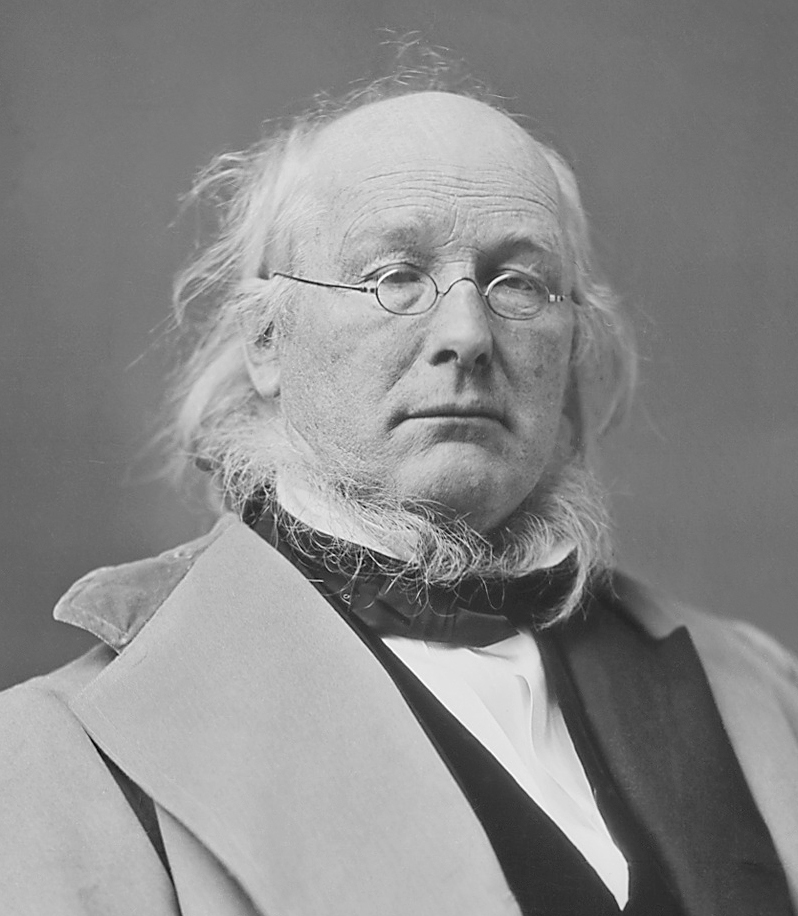Horace Greeley frasi celebri
Horace Greeley: Frasi in inglese
1860s, The Prayer of the Twenty Millions (1862)
Contesto: IX. I close as I began with the statement that what an immense majority of the Loyal Millions of your countrymen require of you is a frank, declared, unqualified, ungrudging execution of the laws of the land, more especially of the Confiscation Act. That Act gives freedom to the slaves of Rebels coming within our lines, or whom those lines may at any time inclose--we ask you to render it due obedience by publicly requiring all your subordinates to recognize and obey it. The rebels are everywhere using the late anti-negro riots in the North, as they have long used your officers' treatment of negroes in the South, to convince the slaves that they have nothing to hope from a Union success-that we mean in that case to sell them into a bitter bondage to defray the cost of war. Let them impress this as a truth on the great mass of their ignorant and credulous bondsmen, and the Union will never be restored-never. We cannot conquer Ten Millions of People united in solid phalanx against us, powerfully aided by the Northern sympathizers and European allies. We must have scouts, guides, spies, cooks, teamsters, diggers and choppers from the Blacks of the South, whether we allow them to fight for us or not, or we shall be baffled and repelled. As one of the millions who would gladly have avoided this struggle at any sacrifice but that Principle and Honor, but who now feel that the triumph of the Union is dispensable not only to the existence of our country to the well being of mankind, I entreat you to render a hearty and unequivocal obedience to the law of the land.
As quoted in New York Tribune (28 February 1860).
1860s
1860s, The Prayer of the Twenty Millions (1862)
1860s, The Prayer of the Twenty Millions (1862)
As quoted in New Yorker (25 August 1838); often paraphrased as "Go west, young man, and grow up with the country", sometimes misattributed to John L. Soule https://books.google.com/books?id=UaTQAAAAMAAJ&pg=PA361&lpg=PA361&dq=+Go+to+the+West.&source=bl&ots=3ys4effVfR&sig=Jq3JDde6ZjCDefVWimZOReHOTlE&hl=en&sa=X&ei=_xPaVNOLJIS7ggS47YPQCw&ved=0CCAQ6AEwAA#v=onepage&q=%22%20publicly%20and%20privately%2C%20Go%20to%20the%20West.&f=false
“There aren't half enough of them going there as it is.”
Reply to a missionary who asked Greeley for a subscription to "help keep people from going to hell", as quoted in "Grab-bag Education", The Book of Journeyman (1930) by Albert Jay Nock
Attributed
“The illusion that times that were are better than those that are, has probably pervaded all ages.”
As quoted in The American Conflict, A History of the Great Rebellion (1864).
1860s
1860s, The Prayer of the Twenty Millions (1862)
1860s, The Prayer of the Twenty Millions (1862)
1860s, The Prayer of the Twenty Millions (1862)
Acceptance of Liberal Republican nomination as President (29 May 1872)
1870s
Greeley on Lincoln (1893), edited by Joel Benton, p. 78.
1890s
1860s, The Prayer of the Twenty Millions (1862)
On the founding of the New-York Tribune, in Recollections of a Busy Life http://books.google.com/books?id=wQgxAAAAMAAJ&pg=PA137 (1868), p. 137.
1860s
1860s, The Prayer of the Twenty Millions (1862)
1860s, The Prayer of the Twenty Millions (1862)
1860s, The Prayer of the Twenty Millions (1862)
HORACE GREELEY’S VIEWS ON VIRGINIA 2 https://archive.org/stream/horacegreeleysvi00gree#page/2/mode/2up (1872)
1870s
